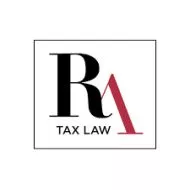Navigating Builder Audits
Builder audits conducted by the Canada Revenue Agency (CRA) are a significant concern for taxpayers involved in real estate transactions, particularly those engaged in construction or substantial renovation projects. These audits scrutinize whether taxpayers qualify as "builders" under Canadian tax laws, potentially leading to assessments for unremitted GST/HST and/or reassessments for income tax.
What is a 'Builder' Audit?
A 'Builder' audit typically commences with the Canada Revenue Agency ("CRA") issuing an initial audit questionnaire inquiring into the circumstances around the sale(s) of one or more 'subject properties' during a specified timeframe. Through this process, the CRA aims to ascertain whether:
- the sale of such subject properties is a 'taxable supply' as defined by section 123(1) of the Excise Tax Act (the "ETA"); and/or
- any gain from the sale of the same is taxable under the Income Tax Act (the "ITA").
The meticulous preparation of a comprehensive response to the initial audit questionnaire is crucial as it can significantly influence the audit's outcome. The documents requested are often extensive and can include, among other items, purchase and sale agreements, financing documents, invoices related to any construction and/or improvement of the subject properties, and any trust agreements, if applicable.
If CRA determines that the sale of any of the subject properties constitutes a taxable supply, and/or that any gain from the sale of the same is taxable, it is likely that they will do so on the basis that you are a builder.
Who is a 'Builder'?
Section 123(1) of the ETA provides that a 'builder' is someone who undertakes the construction or substantial renovation of a residential complex for the purposes of making a supply of the same, by way of sale or lease, except where this is undertaken outside the course of business or trade.
Determining whether the construction or substantial renovation was undertaken outside the course of business or trade generally involves the application of the following criteria to the facts specific to your situation:
- the nature of the property sold;
- the length of ownership;
- the frequency or number of other similar transactions by the taxpayer;
- the work performed on or in connection with the property;
- the circumstances giving rise to the sale; and
- motive.
Outcomes of Builder Audits
If the CRA determines that you are a builder, the practice we have observed from the CRA is that they will first assess you for unremitted GST/HST on the sale price of the subject properties under the ETA, which is immediately collectible notwithstanding any objection and/or appeal to the assessment. Second, depending on the result of any objection and or appeal to the assessment, if any, CRA may issue a corresponding reassessment against you under the ITA with respect to any gain on the disposition of the subject properties. If the CRA's position is that you are a builder, it is likely that this gain will be taxed as business income as opposed to the more tax advantageous capital gain.
Conclusion
Navigating Builder Audits is complex and challenging, the results of which can include substantial assessments and/or reassessment being issued against you. When undergoing a Builder Audit, it is crucial to seek professional legal representation with experience in navigating Builder Audits to assist you in preparing a comprehensive response to the initial audit questionnaire, incorporating relevant documents and applying the law to your specific circumstances.
The content of this article is intended to provide a general guide to the subject matter. Specialist advice should be sought about your specific circumstances.


